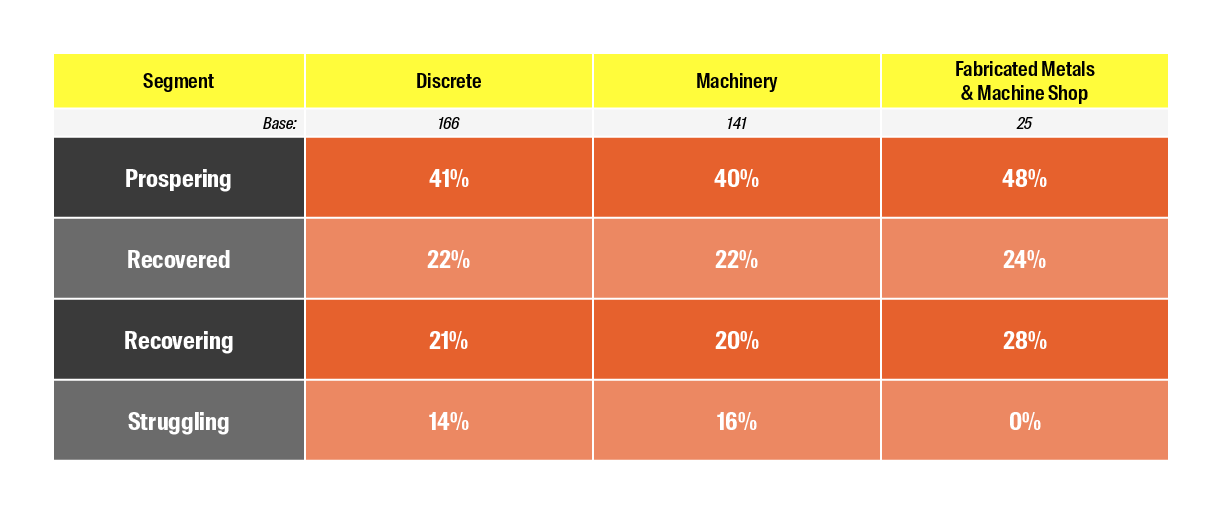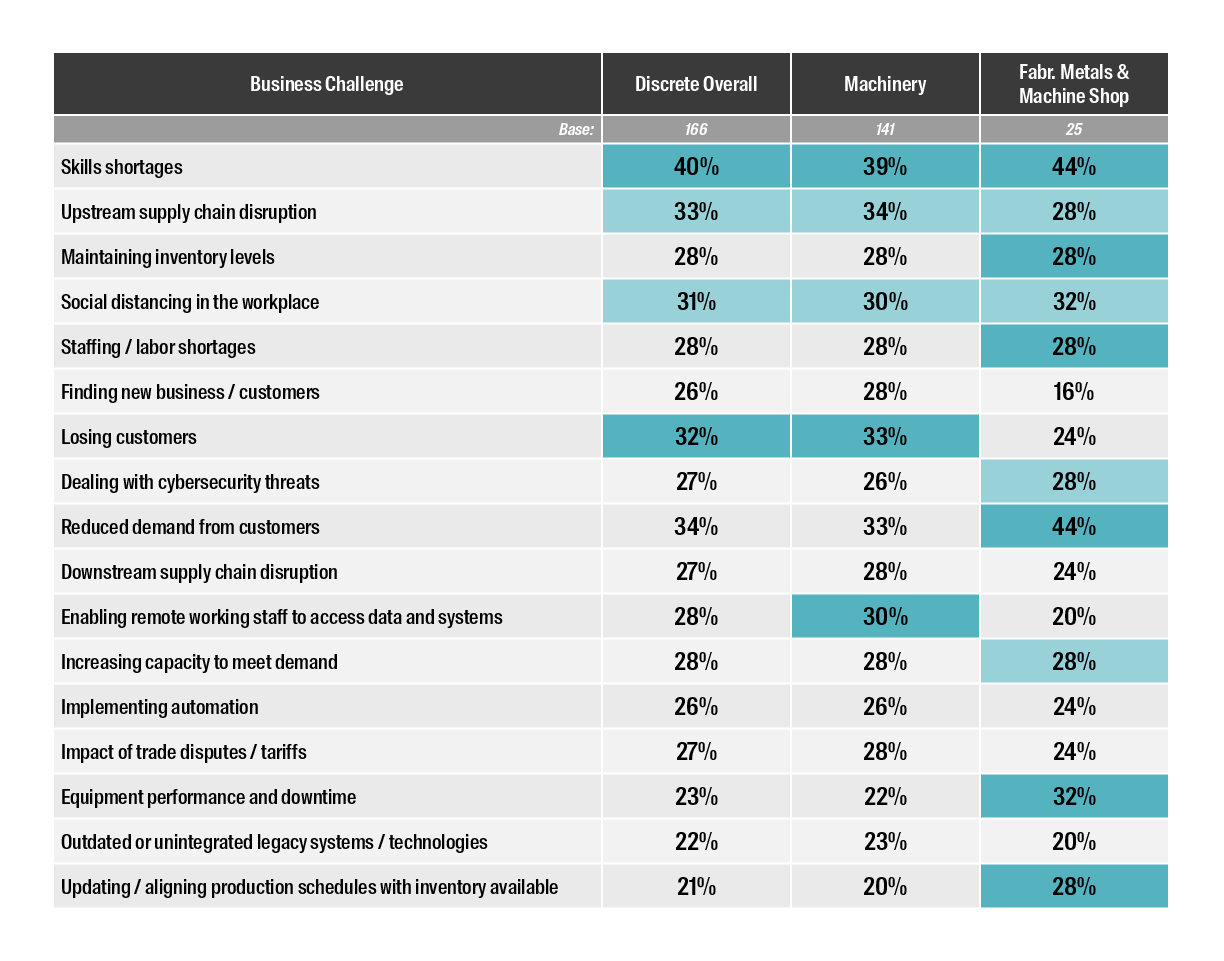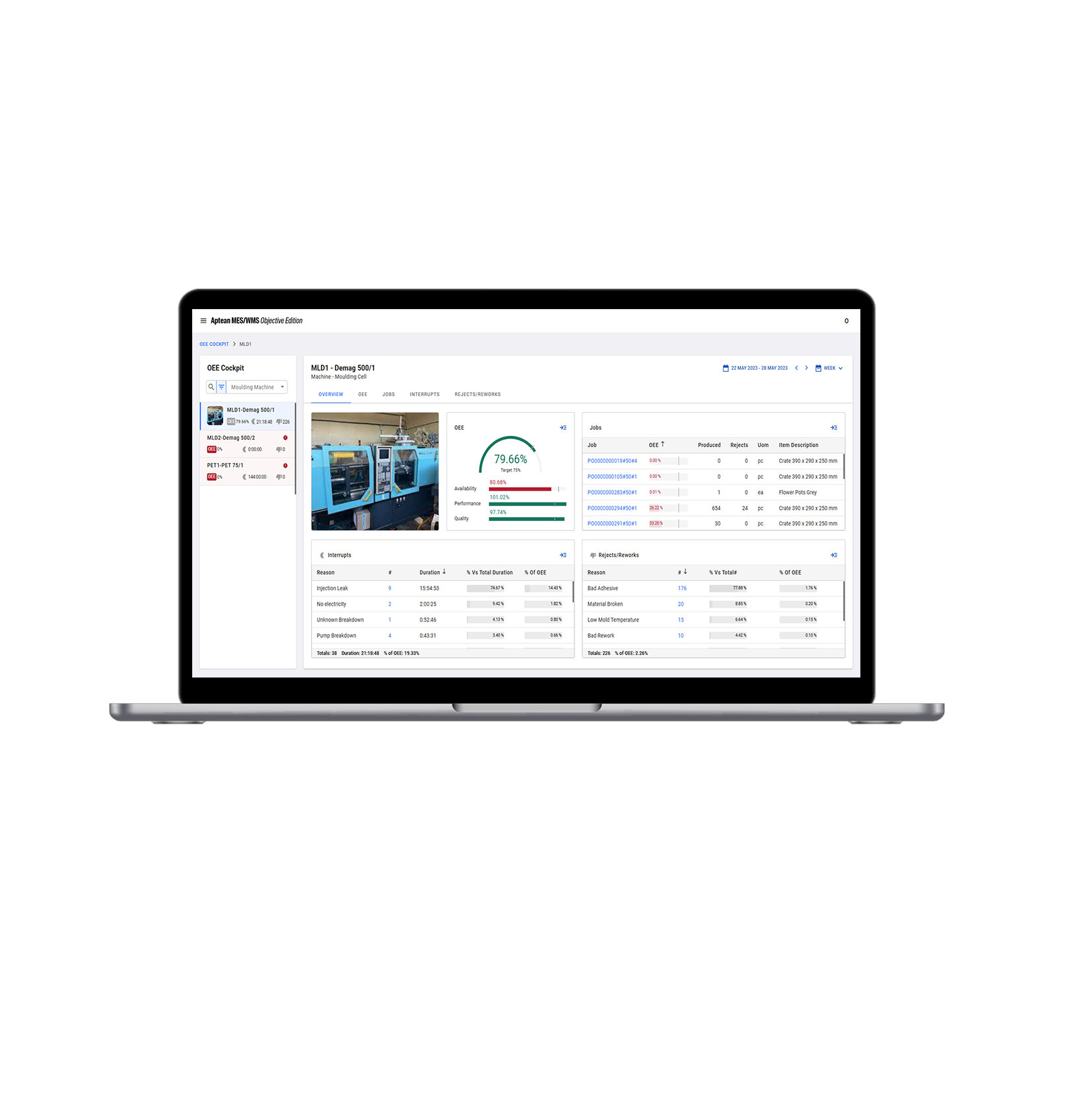4 in 10 Discrete Manufacturers Are Back to Business Prosperity
4 in 10 Discrete Manufacturers Are Back to Business Prosperity
4 in 10 Discrete Manufacturers Are Back to Business Prosperity
Dec 13, 2021
 Andy Pickard | Senior Solutions Consultant, Sales
Andy Pickard | Senior Solutions Consultant, Sales
After a tough trading year in 2020, the manufacturing sector has driven economic recovery over the past 12 months—and it’s paying off for discrete manufacturers. New research by Aptean reveals 4 in 10 (41%) are now back into a place of prosperity following the pandemic, with a further 22% describing themselves as financially recovered.
These figures come from a new survey conducted by Aptean in September/October 2021. In order to benchmark the state of the industry, we spoke to 275 manufacturers across North America, including more than 166 executives in the machinery and fabricated metal manufacturing sub-sectors.
After analyzing sales and revenue data provided by the discrete manufacturers who participated in our study, we categorized their performance into four stages, from struggling to prospering.

Our findings show that activity in the fabricated metal manufacturing sector has been particularly strong across 2021, with almost half (48%) of organizations now prospering and none in the struggling category.
Performance has also been robust in machinery manufacturing, with 62% of companies either recovered or prospering. And these results translate into deep-rooted confidence heading into 2022; 76% of discrete manufacturers predict their sales and revenue will be higher over the next 12 months than in 2021.
What Factors Could Affect Discrete Manufacturing Sales Growth in 2022?
While the discrete manufacturing sector is feeling optimistic about industry fortunes, there are a number of key challenges organizations must overcome to maximize sales and revenue.

Supply chain disruption and skills shortages are the biggest concerns across the discrete manufacturing industry, but sub-sectors also have their own distinct issues. For example, fabricated metals and machine shop manufacturers are much more focused on the impact of equipment performance/downtime and aligning production schedules with available inventory, while machinery manufacturers are still trying to support staff working remotely. They are also far more concerned with finding new business.
Whether it’s industry-wide issues or vertical-specific problems, however, our research clearly shows the diverse challenges discrete manufacturers need to address. And how they solve them will greatly impact their future recovery and prosperity.
How Can Digital Transformation Accelerate Discrete Manufacturing Sales Growth?
Specific issues aside, we asked discrete manufacturing organizations what was standing between themselves and greater business growth in 2022. Our research found that more than a third (36%) of discrete manufacturers believe getting caught up in day-to-day demands will be their biggest issue, closely followed by difficulty finding the best technology solutions to drive improvement (30%) and complex/ambiguous change strategies (28%).
All three of these concerns directly relate to discrete manufacturers’ digital transformation strategies, underpinning the need for greater clarity and cohesion in companies’ 2022 technology investments.
Although 64% of discrete manufacturers have a digital transformation roadmap in place for some or all departments, they are behind the process manufacturing industry, where 81% have a clear roadmap for digital transformation.
We also discovered a lag between manufacturing organizations’ strategic vision and the execution of their digital transformation plans. While 64% of discrete manufacturers have a roadmap in place, only 57% are in the advanced stages of achieving digital transformation. And 1 in 4 discrete manufacturing companies have either not embarked on digital transformation or are still in the early stages.
Aptean Discrete Manufacturing ERP: Driving Sales Growth in 2022
The difference between digital maturity perception and reality is something Aptean will be exploring in greater detail during 2022, but our research clearly shows a need to accelerate the implementation of transformative technologies in the next 12 months. The challenge for discrete manufacturers will be finding solutions that can deliver tangible improvements without creating technical complexities; choosing holistic software that can drive end-to-end change rather than implementing separate pieces of technology to optimize every business area.
Industrial manufacturing ERP software delivers the real-time data insights that discrete manufacturers need to make confident, accurate business decisions. At the same time as automating operations and digitizing everyday processes, to improve shop floor efficiency.
Aptean Industrial Manufacturing ERP software has been developed for the specific needs of discrete manufacturers in sub-sectors including fabricated metal and machinery manufacturing.
Our cloud-based technology enables industrial manufacturers to meet their business goals by increasing visibility and integrating core processes, to drive digital transformation and increase operational capabilities. Two factors that will be critical to ensuring sales and revenue growth at every stage of recovery and prosperity over the next 12 months.
Get in touch to book a free Aptean Discrete Manufacturing ERP demo.
Start Transforming Your Business Today
If you’re ready to take your discrete and industrial manufacturing business to the next level, we’d love to help.



